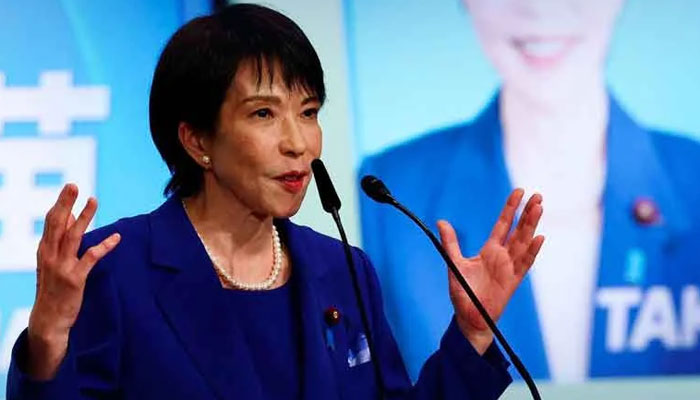Sanae Takaichi Elected as Japan’s Ruling Party Leader, Poised to Become First Female Prime Minister
“I have thrown away my own work-life balance,” she declared in her victory speech. “I will work, work, work.”
TOKYO – Japan’s ruling Liberal Democratic Party (LDP) has elected conservative nationalist Sanae Takaichi as its new leader, setting her on course to become the country’s first female prime minister. The landmark decision is expected to have wide-ranging implications for domestic policy, regional diplomacy, and financial markets.
Takaichi, 64, secured victory over her main rival, the more moderate Shinjiro Koizumi, in a second-round vote on Saturday. The parliamentary vote to formally select the new prime minister is expected on October 15, where Takaichi is heavily favored due to the LDP-led coalition’s majority.
Takaichi assumes leadership at a time of deep political and economic uncertainty. The LDP, which has governed Japan for most of the postwar era, has been losing support due to rising inflation and growing voter dissatisfaction, particularly among the youth. Under outgoing leader Shigeru Ishiba, the party lost its majority in both houses, prompting his resignation.
“There’s a sense that people no longer understand what the LDP stands for,” Takaichi said in her address before the vote. “I want to turn that anxiety into hope.”
Known for her admiration of former British Prime Minister Margaret Thatcher, Takaichi presents a bold and sometimes divisive vision for Japan’s future. As a former minister of internal affairs and economic security, she supports expansionary fiscal policies and is a staunch proponent of the late Shinzo Abe’s “Abenomics” strategy—focusing on aggressive government spending and monetary easing.
Her victory has already affected market expectations, with bond strategist Naoya Hasegawa noting that the likelihood of a Bank of Japan interest rate hike has now diminished. Investors are watching closely, given Japan’s already high debt levels.
Takaichi’s foreign policy positions signal a potential shift in Japan’s regional role. She has suggested forming a “quasi-security alliance” with Taiwan, drawing praise from Taiwanese President Lai Ching-te, who called her a “steadfast friend of Taiwan.” However, her nationalist stance—including visits to the controversial Yasukuni Shrine—may strain relations with China and South Korea, who view such actions as reminders of Japan’s militaristic past.
Read more: Japan Signals Imminent Recognition of Palestinian State, Condemns Israeli Actions at UN
Takaichi has also hinted at renegotiating a Japan–US trade deal made during the Trump administration, in hopes of securing more favorable terms for Japan. In response to her election, US Ambassador George Glass congratulated her, expressing eagerness to strengthen the bilateral alliance.
Takaichi is the first woman to lead the LDP and, if elected as expected, will break a significant gender barrier in Japanese politics. Known for her disciplined work ethic, she vowed to dedicate herself fully to her new role.
“I have thrown away my own work-life balance,” she declared in her victory speech. “I will work, work, work.”
Her leadership comes at a defining moment for Japan, as the nation grapples with economic headwinds, demographic challenges, and a shifting geopolitical landscape.




Comments are closed, but trackbacks and pingbacks are open.